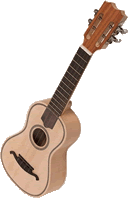On my train back from London on Sunday evening the train manager started someone of his announcements Welsh. For example he said, “Croeso, welcome to this train”, and when checking tickets he said, “Diolch yn fawr, thank you very much” to everyone. I think this was the first time I’d heard Welsh being used on a train, so it caught my attention. I think that announcements on trains and stations in South Wales are usually in Welsh and English, but I had never heard them any elsewhere. The departures board in London Euston also listed the final destination of the trains as ‘Holyhead Caergybi’.
In Wales most signs are bilingual, as is printed material produced by public bodies. In Gaelic-speaking parts of Scotland some signs are bilingual and token amounts of Gaelic can be heard on ferries and sometimes elsewhere. The situation is similar with Manx in the Isle of Man. In Ireland many signs and notices are bilingual, but not much Irish is to be heard on public transport.
In other regions where minority languages are spoken, how visible / audible are the languages?
